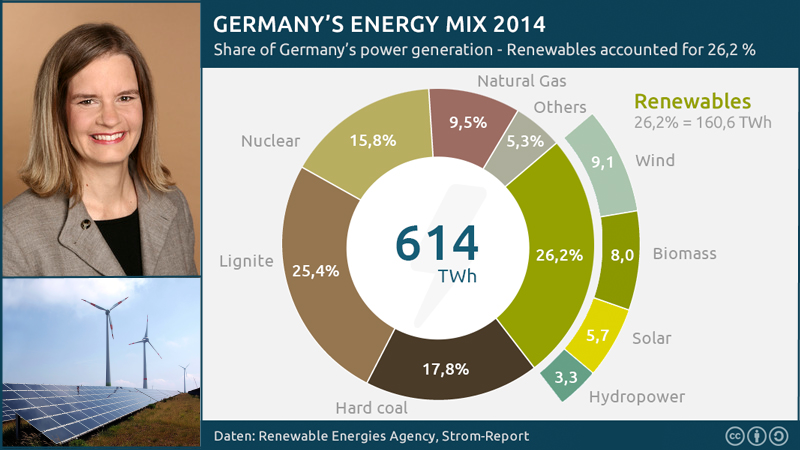האם עתיד של אנרגיות מתחדשות אפשרי?
The German Energiewende (German for energy transition):
Is a Renewable Energy Future Possible?
Prof. Miranda A. Schreurs

Germany’s efforts to transition to a low-carbon energy structure, known as the Energiewende, began with debates over nuclear energy. Opposition to nuclear energy was influenced by many factors, including the anti-nuclear and peace movements of the 1970s, the electoral successes of the anti-nuclear Green Party at the local, Länder and federal levels, and especially the Chernobyl and Fukushima nuclear accidents.
In 2011 the German government voted overwhelmingly to abandon nuclear energy. With the country’s first cross-party consensus on the nuclear issue, legislation was passed stipulating the shut down of the last of the country’s nuclear power plants by 2022. The Energiewende lays down ambitious energy efficiency and renewable energy targets. German targets include an 80-95 percent reduction in carbon dioxide emissions relative to 1990 levels and an expansion of renewable energy to cover 80 percent of electricity demand and 60 percent of final energy consumption by 2050. Whereas in 1990, Germany obtained about 3 percent of its electricity from renewable sources (primarily hydro). In 2015 over 30 percent of electricity was being produced by renewable sources of energy (wind, solar, hydro, biomass, and geothermal). Attention is now turning to how best to remove coal from the energy mix, a highly contentious topic given that some regions in Germany are heavily dependent on coal both as a source of energy and jobs.
In this presentation the progress which has been made in advancing renewables and energy efficiency, the obstacles which must be overcome as more and more renewables enter the system, and the technological and social implications of Germany’s green energy revolution will be examined. What the German energy transition may mean for Israel will also be discussed.

